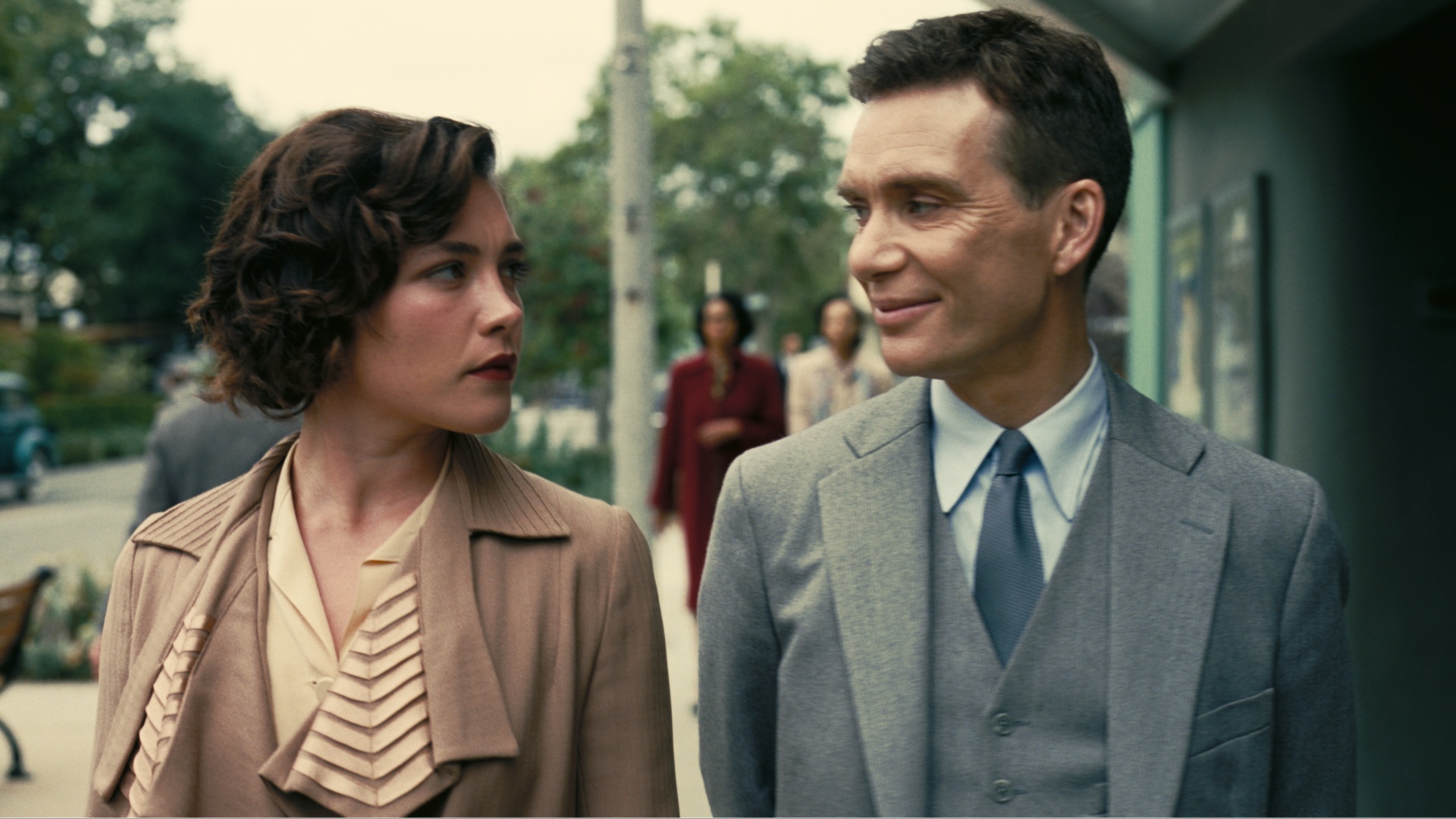As far back as Batman Begins in 2005, Christopher Nolan has been making films rated in the PG-13 bracket, or 12A in the UK. That changes with Oppenheimer. The biopic of the ‘father of the atomic bomb’ marks Nolan’s first R-rated (or 15 certificate) film since Insomnia in 2002.
The BBFC states that Oppenheimer’s 15 certificate is due to "strong language, sex", but there are other aspects of the film that ensure it’s not exactly all-ages viewing, from alcoholism to all-consuming guilt, to the general threat of nuclear annihilation.
On the latest episode of the Inside Total Film podcast, Nolan addresses Oppenheimer’s R-rating. Asked if he knew from the outset that Oppenheimer would necessitate that certification, he says, “Yeah, definitely.”
J. Robert Oppenheimer (played by Cillian Murphy) is an extremely complex and contradictory figure. He’s a scientific genius, lover of the arts, and has an almost savant-level facility with languages. But he’s also a dilettante, a womaniser, and unstable, to list a few of the adjectives thrown at him.
“Oppenheimer’s sexuality – who he was as a person, and how that expressed itself – is a very, very important part to understanding both what motivated him and what pushed him, how he thought,” continues Nolan. “But also the obsessions that ultimately had tremendous consequence in his later life for him, and, by proxy, frankly, for the entire world.
"It was very important to tell his story in a fully realised way. And so, when I brought the project to the studio, they knew the length it was going to be [Oppenheimer has a running time of three hours], and they knew it was going to be R-rated. I was very clear about that.
“It was something we definitely anticipated. We’re just dealing with a very serious and complex subject. I didn’t want to have to shy away from any aspect of it.”

And asked if he sees Oppenheimer as a bleak film, Nolan says: “It’s an interesting analogy for me with Dunkirk. When I was making Dunkirk, I knew, as a British person, the freighted emotion of that story, of that sort of national story that we have, that you grow up with. It’s so extreme, that what I decided to do in the telling of it was to really play against that, and have relatively anonymous characters in not specifically emotional situations, to make an objectively intense film, trusting that the emotion of the story is so great [inherently] that it would actually be sort of, in a way, magnified by that.
“I think I’ve done something in a similar vein with Oppenheimer in that the darkness of the story is so inherent in just what the atomic bomb is, and what it’s meant for the world. We’re really pushing against that in the film, and trying to find the suspense, the fun, the excitement, the incredible relationships… I think the underlying darkness is undeniable. By the end, it overwhelms the film. It’s hard to explain that mechanism exactly. But it feels appropriate. It feels like what the story should always be.”
Oppenheimer opens in cinemas on 21 July. For more from Nolan and star Cillian Murphy, plus Greta Gerwig on Barbie, listen to the latest episode of the Inside Total Film podcast. You can also read more from our interviews with Nolan, as well as actors Emily Blunt and Matt Damon, online.
In the meantime, check out our guide to the rest of the most exciting upcoming movies in 2023 and beyond.

0 Comments